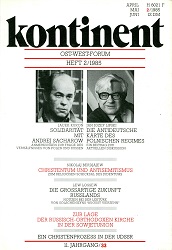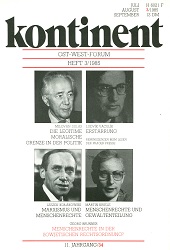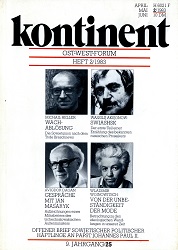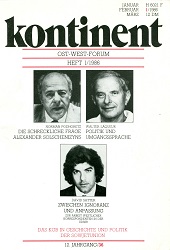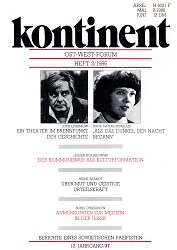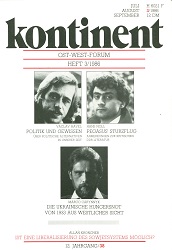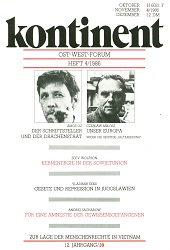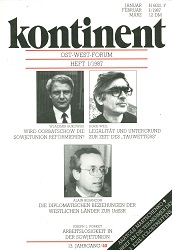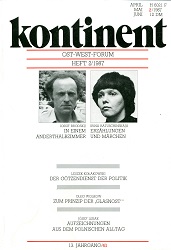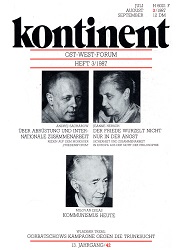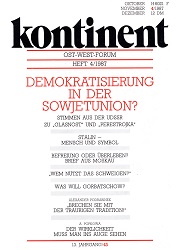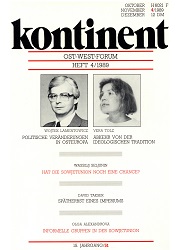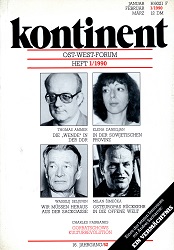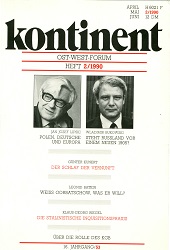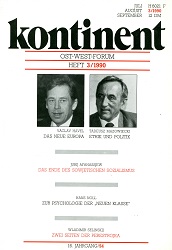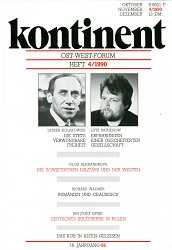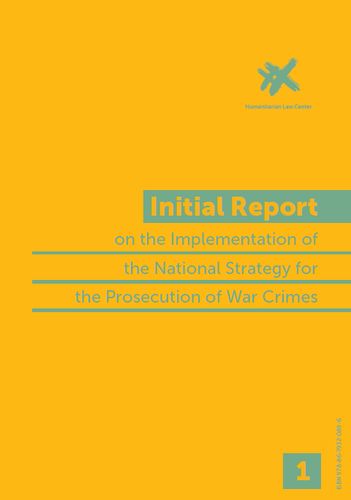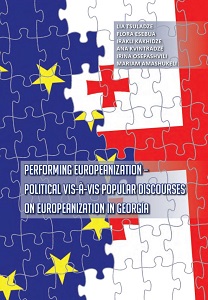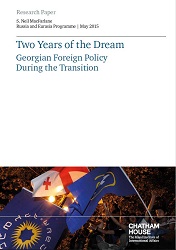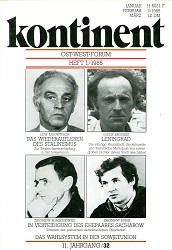
KONTINENT / КОНТИНЕНТ – Ost-West-Forum – Ausgabe 1985 / 32
Polish and Russian voices in defense of the Sakharovs // GERMAN ANDREYEV: What kind of Russia did the Bolsheviks destroy? // LEW JUDOWITSCH: The resurgence of Stalinism // EDUARD BECKER: From the “historical” to the real home. On the integration of German resettlers // VLADIMIR WOINOWITSCH: The issue with the questionnaires // VÁCLAV BELOHRADSKÝ: Literature as a critique of banal evil // IOSSIF BRODSKIJ: Leningrad // W. DENISSOW: The choice of history. A story that happened on election day // NIKOLAJ GUMILJOW: Poetry // The electoral system in the USSR and the moral-political unity of Soviet society // The short existence of the international UNRRA University // “The struggle for all of us”. An exchange of letters between ZBIGNIEW BUJAK and WLADIMIR BUKOWSKI // EDWARD LIPIŃSKI: “You are responsible”. Open letter to General Jaruzelski // IRINA GRIWNINA: “We no longer want to live in your state”. A letter to Konstantin Chernenko
More...
